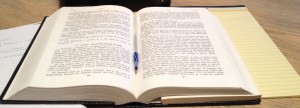Proving Breach of a Property Owner’s Duty
HOW DOES NEGLIGENCE RELATE TO PREMISES LIABILITY?
Premises liability is a form of negligence, which means the plaintiff (usually, the injured party or someone suing on his or her behalf) must prove the elements of negligence in order to prevail.
The elements of a claim for negligence are:
1. The existence of a legally recognized duty;
2. Breach (a violation) of that duty by the defendant;
3. A causative connection between the breach of duty and the plaintiff’s injury; and
4. Damages (an injury or other damages suffered by the plaintiff).
We’ve spent a little time discussing the various legal duties of landowners, and those in possession and control of property–and we’ll return to that topic again before our exploration of premises liability is finished. However, today we’re taking a break from “duty” to take a look at the second element of a premises liability claim: the breach.
WHAT CONSTITUTES A BREACH OF THE LAND OWNER’S DUTY?
Breach of a legally-recognized duty is established by proving that the defendant’s behavior or conduct failed to meet the appropriate standard of care. In most cases, the legal standard requires a defendant to act in the way a reasonable person would have acted under the circumstances.
Sometimes, the requisite standard of care is established by law. When that happens, and the defendant fails to meet the legally-recognized standard, a presumption of negligence arises. The law refers to these situations as negligence per se.
WHEN DOES A PRESUMPTION OF NEGLIGENCE ARISE?
Specifically, a presumption of negligence arises when:
1. the defendant violates applicable law (meaning a statute, ordinance or regulation applicable to the defendant’s conduct or situation);
2. The defendant’s legal violation causes the plaintiff harm or injury;
3. The plaintiff was a the type of person the law was designed or intended to protect (a person “within the intended class of victims”); and
4. The plaintiff’s injury was the type of injury the law was designed or intended to prevent.
The defendant can defeat the presumption by proving that he or she acted in the way a reasonable, law-abiding person would have acted under the circumstances. (This is called “rebutting the presumption.”)
Negligence per se can make it easier for a plaintiff to prove the breach of duty required to support a negligence claim, which makes it an important part of certain cases.
If you believe you have a claim against a property owner, or someone in possession and control of property, consult an attorney promptly. Delay could damage your claims and legal rights.
***
DISCLAIMER: This article is intended for informational purposes only, does not constitute legal advice to any person or entity, and does not create an attorney-client relationship with any person or entity. Premises liability is a complex legal topic, and no single article can provide complete or comprehensive coverage or information about this or any other legal topic or issue. Your personal liability may differ, based on your individual facts and circumstances. If you believe you have a legal claim or issue, or wish to know more about your individual rights, consult an experienced attorney without delay.
















